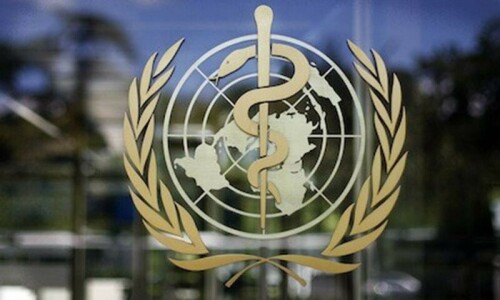NO government, whatever its make-up, can exist for very long if it is too far out of touch with the realities that the common citizenry has to endure. This was not true in earlier times when monarchs ruled the world, but states of that era were fundamentally different from those of our time. Monarchs ruled through local elites, their power declining with the square of the distance from the capital, and did not concern themselves with matters much beyond revenue issues and the maintenance of armed force.
In some cultures, like mediaeval China, the ruler was held to account in the event of a major natural disaster, such as a prolonged drought or catastrophic flooding or an earthquake, because it was argued by the priesthoods of that era that such calamities showed divine displeasure with the ruler, most likely because the ruler did not pray hard enough.
But modern-day nation states are different. They are probably the most complex and most highly developed vehicles for the articulation of sovereign power that have ever existed in human history. No ruler of the past could imagine the kinds of revenue systems and governance machinery that modern-day nation states have, even in their most underdeveloped forms. The great infrastructure investments, land registries, pricing controls and state-owned and managed enterprises and vast state bureaucracy and urban policing responsibilities, along with the array of complex debt instruments and nationally controlled paper currency along with central banks to manage the money supply, to name just a few, are some of the new elements of power available to modern rulers that their mediaeval counterparts could perhaps only dream about.
This great power of society that modern nation states possess comes at a cost for the rulers. Now more than ever, rulers have to be worried about the lot of the common citizenry in their day-to-day affairs. Some of the superstitions of earlier eras survives in our time too, but another sovereign has entered the picture: the people. So if a calamity such as an earthquake strikes, there are still people who will argue that it is the expression of divine displeasure, but the displeasure need not be directed at the ruler, rather at the deviant habits adopted by the people and the widespread prevalence of sin, according to the purveyors of this thinking.
The great power of society that modern nation states possess comes at a cost for the rulers.
Rulers today have to worry about the provision of essential items at prices the people can afford. If the real incomes of a large mass of people should fall, they are liable to blame their rulers for it. If famine strikes, it becomes the job of the ruler to urgently arrange for the provision of food. In times past, rulers need not have made it their specific obligation to counter the events of a plague or arrange for the relocation and upkeep of a large number of people displaced due to a flood. Today, it is their primary responsibility should such calamities strike.
Rulers today are connected to their citizenry through a large number of channels — maintenance of the price level or employment, food security and provision of education and health, to cite a few examples. In times of upheaval, catering to the needs of the displaced or those otherwise impacted, such as through destruction of housing stock or livestock assets, is also a critical connection. Making available vehicles for parking long-term savings and operating pension funds is another.
It is critical in our times for the ruler to be connected to these channels that bind them to their citizens. Democratic systems try to ensure this by making the ruler directly accountable to the ruled. But even authoritarian systems have to find a way to ensure that the rulers are operating the vehicles that tie them to their populace in a way that ensures service delivery, or risk becoming irrelevant.
It is not just a travesty in our time to have a situation of high inflation and high unemployment, where the ruler is either not aware of the situation, or has been persuaded by sycophantic courtiers that none of it is real and it is only his or her enemies who are advancing these allegations to advance their political aims. It is not just a travesty, but is a near fatal error of judgement for a ruler in modern times to close himself or herself off from the world in which the common citizenry is living. The more these ties are broken, the more the ruler and his or her ilk talk a language and communicate a narrative that has little to no meaning for the lives of ordinary citizens, and the more the state loses its own moorings and begins to serve narrow interests rather than the broader ones.
A state progressively captured by private interests and driven by their narratives lives on borrowed time. Once the ruler is convinced that all is going well in the realm, when in reality it is not, that ruler must be weaned out of this comfortable cocoon. It is essential for any ruler to have at least some people in his or her inner circle who provide conflicting advice, conflicting assessments of where things stand. But if that is not the case, if the sycophants have successfully shunted out all those who might serve up a dose of reality for the ruler and cocooned him or her in their manufactured reality built with sugar and spice, then the very moorings of the state are in danger.
Rulers of modern-day nation states cannot afford to turn their gaze away from realities that are unpleasant to their sense of self importance, or their sense of entitlement. If they behave like the monarchs of eras past they break their links with the very people from whom their power flows. The critical question for any ruler to ask themselves in times of challenge is this: which window opens onto the real world, and which one to simply my own curated garden?
The writer is a member of staff.
Twitter: @khurramhusain
Published in Dawn, November 26th, 2020















































